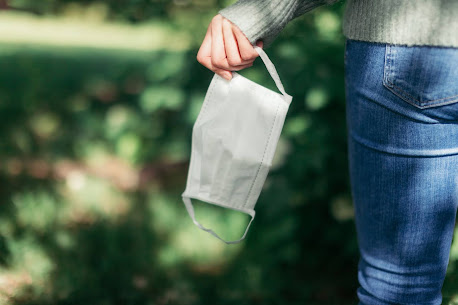What to Know About Delta Variant Outdoor Transmission
The transmission of COVID-19 outside was not common with prior forms from the. However, as the highly contagious Delta type continues to push up the number of cases in certain regions of the nation, many are beginning to question whether this particular variant is more prone to transmission outdoors.
With Labor Day approaches and many Americans are planning outdoor gatherings, the issue is becoming more pressing. Get more information about of COVID-19.
Dr. Diego Hijano, an infectious disease specialist at St. Jude Children's Research Hospital discusses what we have learned so far about the transmission of COVID-19 outside and the best way to safeguard yourself from it.
About Delta's Transmissibility Outdoors
DIEGO HIJANO:
I believe there's no doubt at the moment that Delta is more easily transmissible than any other form of the virus has been seen in this or elsewhere in the world described. There's no question about it. It's not something we can decide at the moment. It's as if, oh, the Delta outdoors cause more tension. It's certainly more infectious.
If you also have a situation in the outdoors with someone else, where you're within close proximity for a long time and the person is coughing or doesn't feel properly, then your danger is higher than it was without any variation.
The Delta variant is certainly more infectious, and as a primary theory, which we've come up with, is that people who are infected by this variant are carrying a lot of viruses within their nasal passages. This is what's driving the transmission, particularly when there is a person who has not been vaccinated affected by the virus.If you have shown any of the common COVID symptoms then you should self-isolate and free covid testing as soon as possible, according to guidelines in your country.
Masks are beneficial, since they stop the person from coughing and throwing drops of liquid into the air. On the other side, someone wearing a mask who will take in those droplets would be protected by the mask. However, the more viruses there are in the droplets, the greater chance that if those droplets are passed to another person, those viruses could cause illness to the person. If you have COVID-19 report positive than contact us Center for COVID care.
Outdoors, we affirm that it's more secure than indoors. But the type of exposure is vital, don't you know? There are rules that say indoor exposure is more risky. But should you be within close proximity to somebody who was coughing in your face and you're in no way wearing any masks then the outdoor rule doesn't make much sense, does it? Information about detla variant outdoors transmission.
At the very least, at the end of the day everyone should have this kind of common sense and for instance, if someone is coughing, even if it's in the open I'd better be a bit distant and wear a mask on.
The most crucial thing you can do to keep yourself safe and your family is to get the vaccine. If you're twelve years old or older, with everyone receiving the vaccine is the most effective way to move forward as a group, then in a group.




Comments
Post a Comment